0 Comments
February 27, 2022. Dina Shabalina, ofs National Fraternity of the Ukraine CIOFS Presidency Councillor, North Europe Dear Dina, On behalf of the National Fraternity of Canada, I am writing to express our deep sadness around the recent violence and aggression that has fallen upon your country. You and the Ukrainian people are in our thoughts and prayers at this most difficult time. As you may know, Canada has a large number of people of Ukrainian descent and, in fact, Ukrainians have made a wonderful contribution to the fabric of our Canadian culture, especially in Western Canada. They too are suffering as they witness recent events in your country. We are all praying that diplomatic efforts will bear fruit in bringing an end to the violence that you are currently experiencing and a return to peace. Through all of these difficulties, know that Jesus, the Prince of Peace, is close to you during these difficult days, and that he will always be at your side through all of the sufferings that you are enduring. Our thoughts and prayers are with you and all of our sisters and brothers in the Ukraine. United in Prayer, Doug Clorey, ofs National Minister, Canada Download PDF Herele 27 février 2022. Dina Shabalina, ofs Fraternité nationale d'Ukraine Conseillère de la Présidence CIOFS, Europe Nord Chère Dina, Au nom de la Fraternité nationale du Canada, je vous écris pour vous faire part de notre profonde tristesse face à la violence et à l'agression qui se sont abattues récemment sur votre pays. Vous et le peuple ukrainien êtes dans nos pensées et dans nos prières en ces moments très difficiles. Comme vous le savez peut-être, le Canada compte un grand nombre de personnes d'origine ukrainienne et, en fait, les Ukrainiens ont apporté une merveilleuse contribution au centre de notre culture canadienne, en particulier dans l'ouest du Canada. Eux aussi souffrent en étant témoins des récents événements dans votre pays. Nous prions tous pour que les efforts diplomatiques portent leurs fruits en mettant fin à la violence que vous vivez actuellement et en ramenant la paix. A travers toutes ces difficultés, sachez que Jésus, le Prince de la Paix, est proche de vous en ces jours difficiles, et qu'il sera toujours à vos côtés à travers toutes les souffrances que vous endurez. Nos pensées et nos prières sont avec vous et avec tous nos frères et soeurs en Ukraine. Unis dans la prière, Doug Clorey, ofs Ministre national, Canada Télécharger ici le PDFLifting Of COVID-19 RestrictionsFebruary 24, 2022. Dear Regional Ministers, On behalf of your National Council, I am writing to provide an update on the national directives issued in September 2021 regarding life in fraternity and COVID-19 vaccinations. These directives were put in place for an initial period of six months; that is, from October 1, 2021 to March 31, 2022. At the end of this period, the situation with the pandemic was to be re-evaluated to determine if these directives were still necessary. At this point, it seems that the OFS national directives have served their purpose in keeping Secular Franciscans as safe as possible during this turbulent time. We recognize that following these directives has been challenging for some fraternities. I would personally like to thank all the sisters and brothers of the National Fraternity of Canada who took these directives seriously and acted prudently when holding fraternity meeting and events in person. I would also like to thank those fraternities who went above and beyond to remain connected to our unvaccinated sisters and brothers and ensuring that they remained engaged in the life of the fraternity. As public health measures across the country begin to be lifted, so too will the measures in place within the OFS National Fraternity. Effective, March 1, 2022, the current restrictions outlined in the National Directive associated with COVID-19 vaccinations, dated September 2, 2021, are being lifted. The National Council continues to encourage all sisters and brothers to be vaccinated but leaves it to each fraternity, local and regional, to determine how best to move forward as the pandemic begins to wane. May the Holy Spirit continue to guide us in living the Gospel of our Lord Jesus Christ in the footsteps of St. Francis. Wishing you peace and all that is good. Doug Clorey, ofs
National Minister Newsletter Christmas 2021Merry Christmas to all! Through this newsletter, I am pleased to share some news from the Holy Spirit Province of Canada and to send you our Christmas greetings. On the first Christmas night, God appeared where people didn’t expect him! God’s greatness lay in making himself small and inconspicuous, even at his birth. Let us not be afraid to approach the crèche asking ourselves who God is… Too often, our world lives as if God didn’t exist. We run the risk of being busy, of doing so many things, and forgetting God. In the crèche as on the cross, God reveals to us who he is and how he loves. At Christmas, he teaches us that love is not gaudy or flashy: it is understated, accessible and simple. Isn’t it true that some of the best parts of life are extremely simple? Friendship, for example, or the grace of being a spouse, a parent, a child, a consecrated person. God speaks to us simply: here, he does so through the birth of a little baby in a manger on a cold and clear night in a poor city of shepherds on the outskirts of Jerusalem. Despite everything that is difficult in our lives – despite the ongoing pandemic – I hope for all of us that in the depths of our hearts is this manger where love is born. God’s love is not revealed in the spotlight, or in the palaces of kings, but rather in a manger, on a bed of straw, between an ox and a donkey. Like Francis of Assisi in Greccio, may we know how to make concrete and tangible the nativity of Jesus! Over the year that is now ending, the pandemic has once again touched our lives and disrupted our opportunities to meet and to gather. In this context, it seems important to remember that Christmas is an invitation to pay close attention to the treasures buried in the human heart! Is it not urgent, in spite of everything, to find ways to connect and to share, and to step up our efforts when it comes to reconciliation and caring for others? Those we love may be experiencing anxiety, the pain of separation or solitude. How can we lighten their burden? Christmas invites us to review our attitudes, our ways of being and living: to rekindle friendships and to restore life where it is lacking. On this feast, my thoughts turn especially to those who are combating the pandemic, to forgotten or abused children, to those who feel abandoned, to migrants who have had to leave their country… The birth of Jesus into poverty, insecurity and anxiety – practically unnoticed – invites us to turn to others and, more than ever, to be attentive to our brothers and sisters who are suffering. Dear friends, may we be granted the ability to truly enter into the grace of Christmas! Fr. Pierre Charland, OFM Minister Provincial Mount St. Francis Retreat Centre: Greccio Christmas Creche Christmas Greetings from Our Postulants!Our postulants Dominic and Brandon, with Friar Paul Seo in the middle. My Franciscan Calling, by Brandon Paziuk Born 35 years ago in Edmonton, AB, I now have a bachelor’s degree in Applied Physics and have worked as a field engineer in the oil and gas industry, a project manager for the construction of sports and entertainment facilities, a co-owner of a company specializing in pipeline instrumentation, and a Combat Engineer Sergeant in the Canadian Armed Forces – Army Reserves. Growing up, my family and I attended regular Sunday Mass, and my grandparents had a strong relationship with the Sisters of the Atonement and the Franciscan Friars in Edmonton. They were my first experience with Franciscans. In my late teens, I began to question the concepts of faith and God. Unfortunately, at that time, “concepts” were all these things were to me, and by my twenties, I had effectively left the Church and God, believing that scientific materialism was “The Way.” By my late twenties, my professional life had become my entire life, and I found myself under a mountain of stress. I began to seriously practice meditation in an effort to counteract the effects of stress. The more I practiced meditation, the more I found myself growing in peace and joy—and the more I found myself questioning my secular worldview. Following a series of impactful meditative-contemplative experiences I came to see the reality of God and the truth of faith, which I had so hastily cast aside in my youth. When I would discuss these things with my friends and colleagues, I found that they, too, were able to greatly benefit from mediative-contemplative practices and I decided to devote my life to the pursuit of this truth—to the pursuit of God. With the early childhood exposure to the Franciscans deeply imprinted on me, Christ’s call came to me in a Franciscan tongue. There is nothing more simple, more beautiful, or more challenging than St. Francis’ call to live like Christ—and I pray that as I fall short and stumble on the way to this ideal, the brothers in this fraternity will have the kindness and patience to point me back towards the path of truth and love. Merry Christmas! Thank you all for this great gift of Postulancy and the opportunity to walk with you toward The Kingdom! My Franciscan Calling, by Dominic Woodbury I was born in Victoria, BC, in 1982, or 800 years after the birth of Saint Francis of Assisi. My mother decided to name me Dominic after Saint Dominic, the Saint of the Rosary. An important influence on my journey towards the Franciscans was my godmother. Now 90 years old, she is a devout Roman Catholic, fluent in Latin and currently writing a book about pro-life advocacy. My mother used to take me to mass at the Franciscan Friary in Victoria when I was a young. I really enjoyed going to mass and meeting the friars. I immediately felt their love for Christ, community, and their joyful and humble spirits. I love the fact that they were easy going and eager to share the word of Christ with me as a child. I attended the Bachelor of Hospitality Management program at Vancouver Community College and then the Teaching English to Speakers of Other Languages Program at Greystone College. I wanted to travel, teach English, and learn Spanish. While living in Mexico, I felt at different moments my calling to join the Franciscan Order. I saw the poverty of the people and saw that there are many people in need. I was inspired when I was invited to Toluca by Father Juan Pablo to visit and help the people in the community. We prepared 100 ham sandwiches and gave them to the people in the street. I was inspired seeing Father Juan Pablo preaching about Jesus and inviting the people to mass; he made everyone feel welcomed and loved. That day, we were both filled with the love of Christ Jesus, and his humble hearted charity work greatly inspired me. I came to the realization that I am here on this earth to help people and learn from others. I learned the language and custom in Mexico, taught English, attended mass, and visited beautiful churches and monasteries. I felt that my life should have a greater purpose. At the time I ignored this urge to join the fraternity. It was not until I returned to Canada in February of 2020 that I had more questions in my mind about the Franciscan fraternity. I had the need to contact the Franciscans and learn more about them. After meeting with Fr. Joachim Yoon, attending the retreat at the Friary in Cochrane and learning more about the humble heartedness of Saint Francis; I felt that my values were in correlation with Franciscan Spirituality. I feel the essence of Franciscan Spirituality is to be Christocentric, living and praying with the friars, being humble-hearted, sharing the word of Christ and helping people. I want to continue to be a humble servant of Jesus Christ and be part of the Franciscan fraternity. My charisms are helping Immigrants, the poor, working with and praying for the sick and elderly. In the future, I hope to do missionary work with the Franciscans in Spanish-speaking developing countries. Do you know that the Franciscans of Canada have a new website? Take a look! The Incarnation, Spiritual Care, and Military Chaplaincy This past year, I began the application process to become a military chaplain in the Canadian Forces Reserves. It might seem strange to some that a Franciscan friar such as myself would feel a call to the ministry of military chaplaincy! Some would think that the Franciscan charism of peace is not compatible with ministry to people who serve in the profession of arms. But I would offer the point of view that it is very Franciscan to be in the ministry of military chaplaincy: It embodies the Franciscan belief in the Incarnation which is expressed in pastoral ministry and spiritual care. As the Christmas season is upon us when we celebrate the first Incarnation of our Lord, I feel it is very apropos to talk about the Incarnational aspects of military chaplaincy. As Christians, we believe in the Incarnation of our God who became flesh with the conception and birth of his Son Jesus Christ; this is enthroned in our Nicene Creed: “We believe in one God. . .who for us and our salvation he came down from heaven, and by the Holy Spirit was incarnate of the Virgin Mary, and became man.” In short, we believe that our God became flesh and took on its burdens and sufferings of humanity in order to bring salvation. We see this enshrined in the Prologue of the Gospel of John and embraced by St. Francis when he constructed the first live Nativity scene at Greccio. The reality of the Incarnation drives the focus and motivation of military chaplaincy and chaplaincy in general. The work of military chaplains understands themselves as “incarnating” Christ’s presence within their congregation, particularly in times of suffering and death. For them, it boils down to a “ministry of presence” and just “being there.” I experienced the Incarnational element of military chaplaincy first-hand. I served as a member of the Canadian Forces for almost 10 years; first as an Army reservist in Ontario, then as a sailor in the Royal Canadian Navy. In addition to the training exercises, I participated in overseas deployments and callouts to assist civil authorities. A constant presence during these times was the chaplain—commonly known in military circles as “the padre.” Throughout my years in military service, whether in garrison, in the field, or on the ship, the chaplain was available for a comforting chat, to develop a relationship with us, and participate in our unit life and activities. Through the chaplains, the presence of Christ was made incarnate once again; they were an outward sign of Jesus and the Church who cares and comforts. The incarnational presence of the military chaplain offers comfort, peace, and sanity in often difficult and harsh environments. Whether I was in recruit basic training, occupational training, on deployment or exercise, there were times when I felt lonely and isolated, missing my family, friends, and things familiar to me. But having access to a chaplain, whether attending their church services or talking with them one-one-one, was an opportunity to experience the comfort and consolation of Christ. The padres offered compassion and understanding; you knew that they were on your side. By virtue of experiencing the same hardships as an ordinary soldier, military chaplains are able to establish a unique relationship of trust with a servicemember which might not be possible with other healthcare professionals. Soldiers trust the chaplain because he/she knows that the chaplain understands what they are going through because they are going through the same thing as well. The chaplain becomes a neutral brother or sister in arms—they wear the same uniform but are not beholden to the same command structure and authority; they can respond to the spiritual and mental health needs of the soldier and make recommendations directly to the Commanding Officer. Like the person of Jesus Christ, military chaplains take on the role of protector and counsellor, particularly when the military members are away on deployments. The incarnational nature of military chaplaincy also reminds the military institution of the existence of a spiritual element within the human person. This becomes increasingly important as military forces such as Canada’s become increasingly involved in combat operations, disaster assistance, confronting human rights abuses, etc. These types of traumas experienced by soldiers compels them to search the spiritual realm for answers concerning the meaning of life, suffering, God, good and evil, etc. Retired General Romeo Dallaire supports this perspective in his memoir Shake Hands with the Devil describing his battle with PTSD stemming from his experience in Rwanda: “. . . in Rwanda I shook hands with the devil. I have seen him, I have smelled him, I have touched. I know the devil exists, and therefore I know that there is a God” (preface, xviii). This perspective is supported by studies of veterans who have undergone extreme stress; like the general population, they often turn toward the spiritual or “higher power” in search of answers. Military chaplains, therefore, are especially well-equipped to address these spiritual concerns in the healing process and to lessen the effects of operational stress injuries such as PTSD. Chaplains, when given the proper formation and training, can offer the soldier the spiritual support and make manifest the Christ-like values of forgiveness, love, reconciliation, hope, compassion and generosity as means of healing the whole person—both physically and spiritually. The Incarnational nature of military chaplaincy is also true for other forms of chaplaincy such as prison and hospital chaplaincy. They bring Christ to the prisoner and to those who are sick and dying. What is common among them is the Franciscan belief in the poor and suffering Christ which St. Francis saw present in the world. As a former military member, I see the poor Christ in those who are presently serving in uniform in Canada. That drives my call to serve them as a chaplain; to “be there for them” and make Christ present for them. Benjamin Ripley, OFM Giotto: The Nativity There between an ox and a grey donkey Sleep, sleep, sleeps The Little Son One thousand divine angels, a thousand seraphim (They) fly around this great God of love.
I imagine that if a children's choir began to sing this very old Christmas hymn: There between an ox and a gray donkey having before their eyes this Nativity of Giotto, they would easily discover the main illustrations of these words of children that abound in this Christmas hymn composed on the model of a childish folk melody. It seems to me that these little singers would immediately see in the center of the painting of the crib "an ox and a donkey" near the baby Jesus with Mary at his side. Surely they would ask the question: Why are these animals in this place in front of "the little son, between the two arms of Mary." We know that the presence of an ox and a donkey in the manger of Bethlehem is not mentioned in the Gospels but is inspired by the prophet Isaiah who reproaches Israel and its people for not knowing its God unlike the ox and the donkey: "The ox knows its owner and the donkey its master’s crib, Israel knows nothing, my people understands nothing." (Is, 1: 1-3). In this Nativity of Giotto, we notice that "the little son" of this scene of the nativity scene is not at all sleeping (as the words of the hymn indicate) but that he is perfectly awake! In fact, he has his eyes open, and they are fixed on the face of Mary who also looks him in the eyes for the first time. Mary's head bows slightly, a slight smile forms on her lips and her little boy seems to smile at her in return. Perhaps she is singing to him tenderly: Sleepy, sleep, the child will sleep The child’s gonna quickly fall to sleep Sleepy, sleep, the child will sleep The child soon’s gonna fall to sleep! It is quite likely that our little singers would not have noticed this detail "of the little son" who does not sleep or this other detail that is at the very bottom of the crib: Another presentation of the Child Jesus in the arms of a midwife who is about to make him take his bath with the help of another companion. The images of the two choirs of angels bearing these charming names of "a thousand divine angels, a thousand seraphim" would certainly have attracted the attention of our little singers who would have seen them first and admired them at length. It is quite rare, however, to find in a Nativity two choirs of angels, one inside the nativity scene and the other outside as Giotto does here. We see in this painting that the angels arrive hastily from all sides. Twelve of them represent the celestial choir of the "thousand divine angels" who fly above the Mother and Child. These angels have half-celestial and half-earthly faces, and their hands are joined together for prayer, but they wear robes that curve with a flower resembling musical notes. So, they would be singing. Above the roof, other angels (the " thousand seraphim?") converge to the star of Bethlehem, located at the central top of the painting and the golden rays descend on the Newborn Child: "this great God of love". The Word became Flesh and suddenly from the heavens burst the songs of praise of the many seraphim who are "myriads of myriads and thousands of thousands" (Rev 5:11). "And suddenly", as St. Luke writes (Lk 2:13-14), "with the angel there was a great throng of the heavenly host praising God and singing, Glory to God, in the highest heaven and on earth peace to people of good will." To express in colour this Glory of God appearing in the sky of Bethlehem, Giotto uses a shade of fine stone of an unparalleled azure blue. A Franciscan from Assisi, Enzo Fortunato, writes about this colour: "Everything is both so powerful and so quiet. Giotto eliminates special effects and uses that blue colour, unprecedented, 'so captivating, so moving' that no one can resist... The pigment has the same brilliance as gold, but more real: the starry vault is blue, the sky of (the Nativity) is blue. Mary's coat is blue. A deep, luminous but above all 'royal and real' colour." Wishing you all the best for Christmas 2021 here is a short excerpt from the Christmas Psalm of St. Francis of Assisi: "This is the day the Lord has made; let us exult and be glad in it. For the most holy beloved child is given to us, and he was born on the way and placed in a manger because he had no place in the inn. Glory to God in the highest and on earth peace to people of good will. Let heavens rejoice and earth exult, the sea and all that is in it be moved, let fields and all that is in them be glad. Sing to him a new song; sing to the Lord, all the earth! " George Morin, OFM Infolettre Noël 2021, Un joyeux Noël à tous! | Newsletter Christmas 2021, Merry Christmas!12/23/2021 Infolettre Noël 2021Un joyeux Noël à tous!Par cette infolettre, il me fait plaisir de vous partager quelques nouvelles de la Province Saint-Esprit du Canada, et de vous offrir nos meilleurs voeux. En la première nuit de Noël, Dieu est apparu là où ne l’attendait pas! La grandeur de Dieu a été de se faire petit et discret, même dans sa naissance. N’hésitons pas à nous approcher de la crèche en nous interrogeant sur qui est Dieu… Notre monde ne vit-il pas trop souvent comme si Dieu n’existait pas? Nous courons le risque de nous affairer, de nous occuper de beaucoup de choses, et d’oublier Dieu. Dans la crèche comme sur la croix, Dieu nous révèle qui il est et comment il aime. À Noël, il nous enseigne que l’amour n’est pas tapageur: il est discret, accessible et simple. N’est-il pas vrai que certains des plus beaux aspects de la vie sont extrêmement simples? L’amitié, par exemple, ou la grâce d’être un époux, une épouse, un parent, un enfant, une personne consacrée. Dieu nous parle simplement: ici, il le fait par la naissance d’un petit bébé, dans une crèche, par une nuit froide et claire dans une pauvre petite ville de bergers, à la périphérie de Jérusalem. Malgré tout ce qui fait mal dans nos vies – malgré la pandémie qui perdure – je nous souhaite qu’il y ait dans le creux de nos coeurs cette mangeoire où naît l’amour. L’amour de Dieu ne se manifeste pas sous le feu des projecteurs, ni dans les palais des rois, mais plutôt dans une crèche, sur la paille, entre un boeuf et un âne. Comme François d’Assise à Greccio, sachons rendre concrète et palpable la nativité de Jésus! Au cours de l’année qui vient de s’écouler, la pandémie a encore une fois marqué nos vies et entravé nos possibilités de nous rencontrer et de nous rassembler. Dans ce contexte, il me semble important de rappeler que Noël est une invitation à porter une attention particulière aux richesses enfouies dans le coeur humain! N’est-il pas urgent, malgré tout, de trouver des moyens d’échange et de partage, et de multiplier nos efforts de réconciliation et d’attention aux autres? Nos proches sont peut-être touchés par l’angoisse, la douleur de la séparation ou la solitude. Comment pouvons-nous alléger leur fardeau? Noël nous invite à revoir nos attitudes, nos façons d’être et de vivre: pour ranimer l’amitié, et pour faire renaître la vie là où elle est en souffrance. En cette fête, ma pensée va particulièrement à ceux et celles qui luttent contre la pandémie, aux enfants oubliés ou abusés, à ceux et celles qui se sentent délaissés, aux migrants qui ont dû quitter leur pays… La naissance de Jésus dans la pauvreté, la précarité et l’angoisse – presqu’inaperçue – nous invite à nous tourner vers les autres, et, plus que jamais, à être attentifs à nos frères et soeurs qui souffrent. Chers amis, qu’il nous soit accordé d’entrer réellement dans la grâce de Noël! Fr. Pierre Charland, OFM Ministre provincial Centre de retraites spirituelles Mont Saint-François: Crèche de Noël à Greccio (en anglais). Voeux de Noël de nos postulants!Ma vocation franciscaine, par Brandon Paziuk Je suis né il y a 35 ans à Edmonton, en Alberta. Détenteur d’un baccalauréat en physique appliquée, j’ai travaillé comme ingénieur de chantier dans l’industrie pétrolière et gazière, comme gestionnaire de projet pour la construction d’installations sportives et de divertissement, comme copropriétaire d’une entreprise spécialisée dans l’appareillage de pipelines et comme sergent du génie de combat au sein de la Réserve des Forces armées canadiennes. Dans mon enfance, je participais régulièrement à la messe du dimanche avec ma famille. Mes grands-parents entretenaient des relations étroites avec les Soeurs de l’Atonement et les Frères franciscains d’Edmonton. Ceux-ci ont été mes premiers contacts avec les Franciscains. À la fin de mon adolescence, j’ai commencé à remettre en question les concepts de foi et de Dieu. Malheureusement, à cette époque, c’est tout ce que ces choses étaient pour moi, des « concepts ». Une fois dans la vingtaine, je me suis bel et bien éloigné de l’Église et de Dieu, considérant le matérialisme scientifique comme étant « la Voie ». À la fin de la vingtaine, ma vie professionnelle était devenue toute ma vie, et je me suis retrouvé croulant sous le stress. Pour en contrer les effets, je me suis mis à pratiquer la méditation de façon assidue. Plus je pratiquais la méditation, plus je grandissais dans la paix et la joie, et plus je remettais en doute ma vision séculière du monde. À la suite d’une série d’expériences marquantes de méditation-contemplation, j’ai fini par reconnaître la réalité de Dieu et la vérité de la foi, que j’avais si rapidement mises de côté dans ma jeunesse. Lorsque je parlais de ces choses avec mes amis et mes collègues, je constatais qu’ils pouvaient, eux aussi, bénéficier grandement des pratiques de méditation-contemplation. J’ai donc décidé de consacrer ma vie à la quête de cette vérité – la quête de Dieu. Comme mes contacts avec les Franciscains dans mon enfance m’avaient profondément marqué, l’appel du Christ m’est parvenu dans une langue Franciscaine. Il n’y a rien de plus simple, de plus beau ou de plus stimulant que l’appel de saint François à vivre comme le Christ. Je prie pour que, lorsque je tomberai et trébucherai sur le chemin vers cet idéal, les frères de cette fraternité auront la gentillesse et la patience de me ramener dans la voie de la vérité et de l’amour. Joyeux Noël! Merci à vous tous pour ce grand cadeau qu’est le postulat et pour l’occasion qui m’est offerte de cheminer avec vous vers le Royaume! Ma vocation franciscaine, par Dominic Woodbury Je suis né à Victoria, en Colombie-Britannique, en 1982, soit 800 ans après la naissance de saint François d’Assise. Ma mère a décidé de me prénommer Dominic en l’honneur de saint Dominique, le saint du Rosaire. Ma marraine a eu une influence importante sur mon cheminement vers les Franciscains. Fervente catholique, elle est aujourd’hui âgée de 90 ans. Elle parle couramment le latin et écrit actuellement un livre sur la mobilisation provie. Quand j’étais jeune, ma mère avait l’habitude de m’emmener à la messe à la Fraternité franciscaine de Victoria. J’aimais beaucoup assister à la messe et rencontrer les frères. J’ai immédiatement ressenti leur amour pour le Christ, pour la communauté, et leur esprit joyeux et humble. J’aimais le fait qu’ils étaient sympathiques et désireux de partager la parole du Christ avec l’enfant que j’étais. J’ai suivi le programme de baccalauréat en gestion hôtelière au Vancouver Community College, puis le programme d’enseignement de l’anglais aux locuteurs d’autres langues au Greystone College. Je voulais voyager, enseigner l’anglais et apprendre l’espagnol. Pendant que je vivais au Mexique, j’ai ressenti à diverses occasions un appel à rejoindre l’ordre franciscain. J’ai vu la pauvreté des gens et j’ai constaté qu’il y avait beaucoup de personnes dans le besoin. J’ai été inspiré lorsque le père Juan Pablo m’a invité à Toluca pour visiter et aider les gens de la communauté. Nous avons préparé 100 sandwiches au jambon et les avons distribués aux gens dans la rue. J’ai été inspiré en voyant le père Juan Pablo prêcher sur Jésus et inviter les gens à la messe; il faisait en sorte que chacune, chacun se sente accueilli et aimé. Ce jour-là, nous étions tous deux remplis de l’amour de Jésus, et son travail caritatif en toute humilité m’a beaucoup inspiré. J’ai pris conscience que je suis ici sur terre pour aider les gens et apprendre des autres. Au Mexique, j’ai appris la langue et les coutumes, j’ai enseigné l’anglais, j’ai assisté à la messe et visité de magnifiques églises et monastères. Je sentais que ma vie devait avoir un dessein plus grand. À l’époque, j’ai ignoré ce désir de rejoindre la fraternité. C’est seulement à mon retour au Canada en février 2020 que je me suis posé plus de questions sur la fraternité franciscaine. J’ai ressenti le besoin de contacter les Franciscains et d’en apprendre davantage sur eux. Après avoir rencontré le père Joachim Yoon, participé à la retraite à la Fraternité de Cochrane et en avoir appris davantage sur l’humilité de saint François, j’ai senti que la spiritualité franciscaine correspondait à mes valeurs. Je crois que le fondement de la spiritualité franciscaine consiste à être centré sur le Christ, à vivre et prier avec les frères, à être humble, à transmettre la parole du Christ et à aider les gens. Je veux continuer à être un humble serviteur de Jésus Christ et à faire partie de la fraternité franciscaine. Je possède les charismes de l’aide aux immigrants et aux pauvres, du travail et de la prière avec les malades et les personnes âgées. Dans l’avenir, j’espère effectuer un travail missionnaire avec les Franciscains dans des pays en développement hispanophones. Savez-vous que les Franciscains du Canada ont un nouveau site web? |
| We begin with the reporting that if we continue to live the way we are living, we would require up to five planet earths to give everyone a standard of living like ours. As an environmentalist, member of Trócaire, and vice-chair of the Laudato Si’ Movement, Lorna Gold names Pope Francis as her hero. The Earth is our common home and like a sister with whom we share our life, a beautiful mother who opens her arms to embrace us. It is with this image that could hold the power to heal the deep fracture we feel between ourselves and the beautiful earth we live on. We have forgotten the utter dependence we all have on the earth often living with the myth that we are its masters. But we remain dependent on our one small planet made of the same elements we are made of. If we continue to destroy its life support system in our quest to master our fate, then in the end we also lose. |
We need to allow ourselves the time and space to rediscover ourselves as part of this earth and to be deeply grateful for it. We are less likely to destroy something we love deeply, something we see as part of ourselves. We can look to St Francis of Assisi who had a deep bond with all of creation. We need only look at his Canticle of the Creatures to see the right relationship we should have with creation. The parts of creation are our sisters and brothers! There is far greater happiness in being than in having, to free ourselves from excess and to realize what is ‘enough’. It is in cultivating that deep gratitude for all life especially the natural world, a precious gift in itself. As Pope Francis tells us, the world is a joyful mystery to be contemplated with gladness and praise, Laudato Si’.
Download PDF Here
Life in Fraternity and COVID-19 Vaccinations
Doug Clorey, ofs, National Minister
Doug Clorey, ofs, National Minister
Since October 1, 2021, a national directive has been in place within the National Fraternity of Canada regarding the participation of vaccinated and unvaccinated sisters and brothers in fraternity meetings, chapters and events. This directive was a response to requests from both regional and local fraternities to provide direction in this area.
| Simply put, for an initial period of six months, the directive requires that only Secular Franciscans who are fully vaccinated attend and participate in fraternity meetings, chapters and events in person. It also requests that all fraternities endeavor to accommodate Secular Franciscans who are unvaccinated so that they may continue to participate in the life of the fraternity during this period. |
As expected, this directive has been welcomed by some and criticized by others. In this regard, I would like to emphasize that no judgments are being made on the choices made by individual Secular Franciscans to remain unvaccinated. I would encourage all of us to be patient and kind with our sisters and brothers who have made this choice and to continue to love and reach out to them as best we can during these challenging times. And, to those who have chosen to remain unvaccinated, I would encourage you to also be patient and kind with your sisters and brothers who have chosen to be vaccinated. Please respect the choices that they have made. It is most disheartening to read some of the material being circulated by Secular Franciscans that is clearly disrespectful and offensive to the members of our family.
Finally, let us remember that we are an Order within the Catholic Church, called to be a
“community of love”, as Saint Pope John Paul II exhorted us to be at the OFS General Chapter in 2009. As individuals, we may not have qualms about taking and expressing strong positions on certain issues; however, as members of the Secular Franciscan Order, there are boundaries that must be respected if we are to maintain unity and live in full communion within the Church (OFS Rule, 6). Clearly, we don’t have to agree with everything, but we do need to think long and hard before we decide to break the bonds of unity and follow our own path.
At the end of the day, it is my hope that all will understand that the primary objective of this time-limited directive is the safety of all the sisters and brothers, as well as the safety of those with whom they come in contact.
Finally, let us remember that we are an Order within the Catholic Church, called to be a
“community of love”, as Saint Pope John Paul II exhorted us to be at the OFS General Chapter in 2009. As individuals, we may not have qualms about taking and expressing strong positions on certain issues; however, as members of the Secular Franciscan Order, there are boundaries that must be respected if we are to maintain unity and live in full communion within the Church (OFS Rule, 6). Clearly, we don’t have to agree with everything, but we do need to think long and hard before we decide to break the bonds of unity and follow our own path.
At the end of the day, it is my hope that all will understand that the primary objective of this time-limited directive is the safety of all the sisters and brothers, as well as the safety of those with whom they come in contact.
Download Entire PDF File Here
Where to Begin?
The book, Climate Generation, Awakening to Our Children’s Future by Lorna Gold, 2019 focuses on the climate crisis we are currently facing. This article takes several passages from the chapter titled Embracing the Earth. We pass on these thoughts, now in the light of the Laudato Si’ Action Platform. Over the next several months Franciscan Voice Canada will endeavor to highlight the Laudato Si’ Action Platform and help Secular Franciscans focus on “Calling for a new way of thinking, feeling, understanding and living.” This has been the message of Pope Francis that was particularly poignant in Laudato Si’ and Fratelli Tutti encyclicals.
| We begin with the reporting that if we continue to live the way we are living, we would require up to five planet earths to give everyone a standard of living like ours. As an environmentalist, member of Trócaire, and vice-chair of the Laudato Si’ Movement, Lorna Gold names Pope Francis as her hero. The Earth is our common home and like a sister with whom we share our life, a beautiful mother who opens her arms to embrace us. |
It is with this image that could hold the power to heal the deep fracture we feel between ourselves and the beautiful earth we live on. We have forgotten the utter dependence we all have on the earth often living with the myth that we are its masters. But we remain dependent on our one small planet made of the same elements we are made of. If we continue to destroy its life support system in our quest to master our fate, then in the end we also lose.
We need to allow ourselves the time and space to rediscover ourselves as part of this earth and to be deeply grateful for it. We are less likely to destroy something we love deeply, something we see as part of ourselves. We can look to St Francis of Assisi who had a deep bond with all of creation. We need only look at his Canticle of the Creatures to see the right relationship we should have with creation. The parts of creation are our sisters and brothers! There is far greater happiness in being than in having, to free ourselves from excess and to realize what is ‘enough’. It is in cultivating that deep gratitude for all life especially the natural world, a precious gift in itself. As Pope Francis tells us, the world is a joyful mystery to be contemplated with gladness and praise, Laudato Si’.
Where to Begin? We begin where Laudato Si’ tells us that we must repent of the ways we have harmed the planet, to acknowledge our contribution to the disfigurement and destruction of creation. Only then can we begin our ecological conversion to ask the earth, my mother for forgiveness where we neglected to protect her and forgotten to notice and appreciate her beauty.
We need to allow ourselves the time and space to rediscover ourselves as part of this earth and to be deeply grateful for it. We are less likely to destroy something we love deeply, something we see as part of ourselves. We can look to St Francis of Assisi who had a deep bond with all of creation. We need only look at his Canticle of the Creatures to see the right relationship we should have with creation. The parts of creation are our sisters and brothers! There is far greater happiness in being than in having, to free ourselves from excess and to realize what is ‘enough’. It is in cultivating that deep gratitude for all life especially the natural world, a precious gift in itself. As Pope Francis tells us, the world is a joyful mystery to be contemplated with gladness and praise, Laudato Si’.
Where to Begin? We begin where Laudato Si’ tells us that we must repent of the ways we have harmed the planet, to acknowledge our contribution to the disfigurement and destruction of creation. Only then can we begin our ecological conversion to ask the earth, my mother for forgiveness where we neglected to protect her and forgotten to notice and appreciate her beauty.
Download Complete PDF Here
Orange Shirt Day - September 30th
This day honours those who were taken from their homes and placed in residential schools around Canada. These schools forced Metis, Inuit, and First Nations children to disconnect from their culture and assimilate into Canadian society. It is important for the reconciliation process for the individuals and families that were affected by the residential schools.
Why...
September 30th? This was the time of year children were taken from their homes to the residential schools.
Orange? Phyllis Webstad, a former student and creator of orange shirt day, left for her first day at the residential school in her new orange shirt given to her by her grandmother. When she arrived, they took her brand new shirt away from her.
See below for what you can do:
Why...
September 30th? This was the time of year children were taken from their homes to the residential schools.
Orange? Phyllis Webstad, a former student and creator of orange shirt day, left for her first day at the residential school in her new orange shirt given to her by her grandmother. When she arrived, they took her brand new shirt away from her.
See below for what you can do:








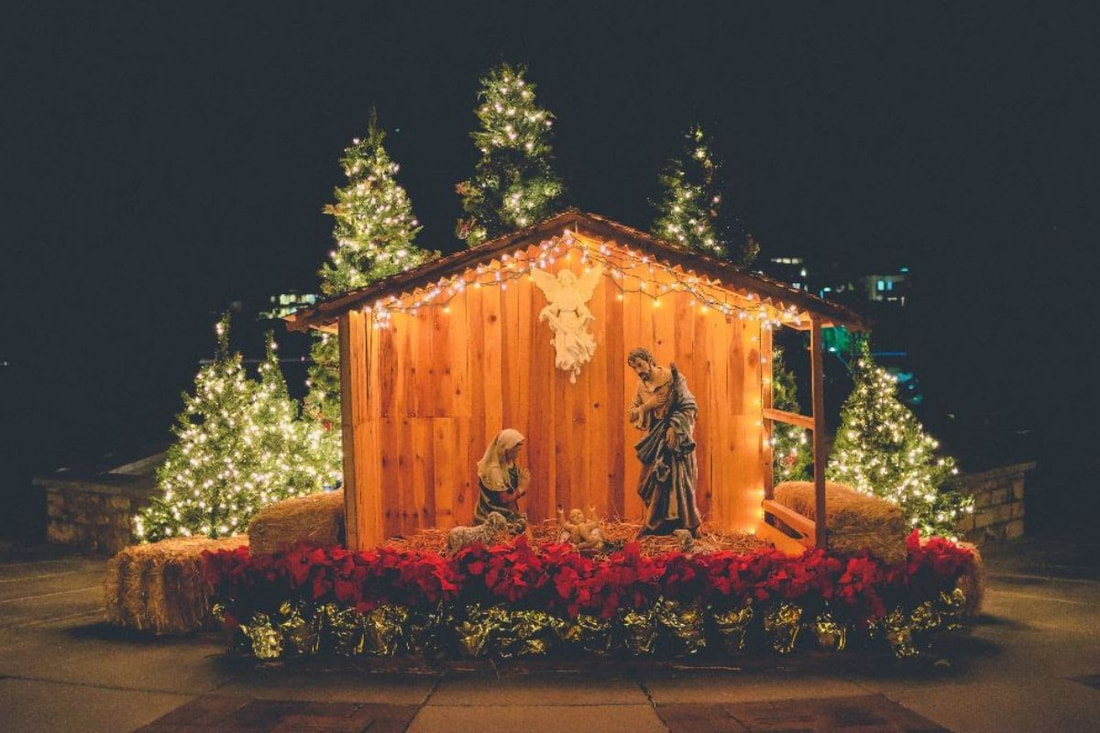
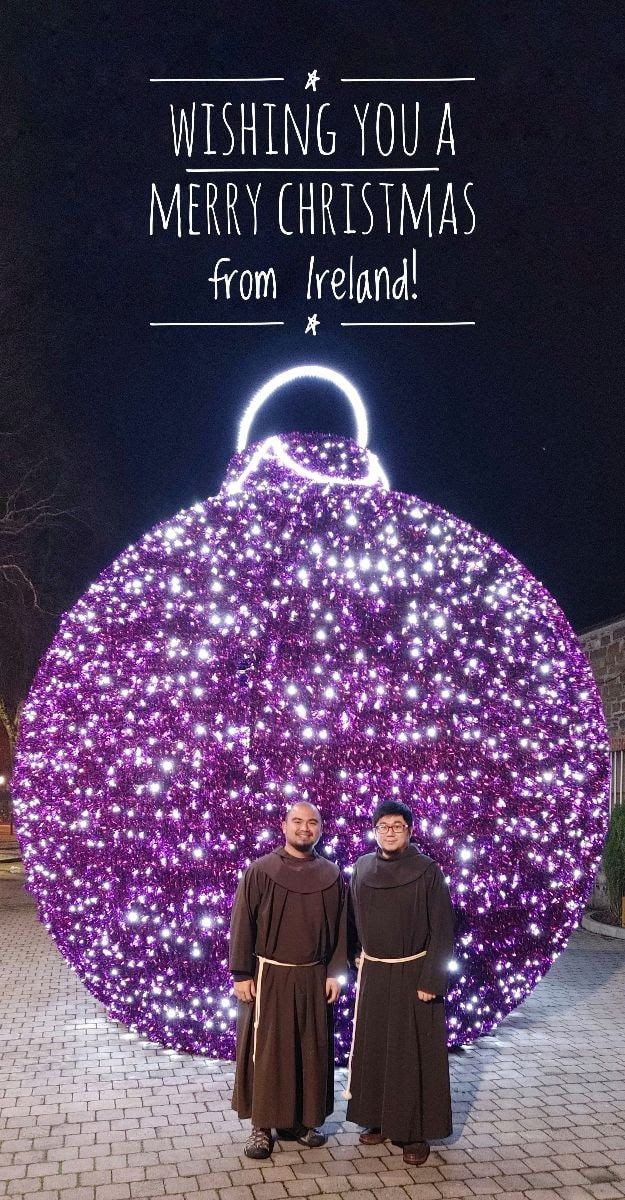
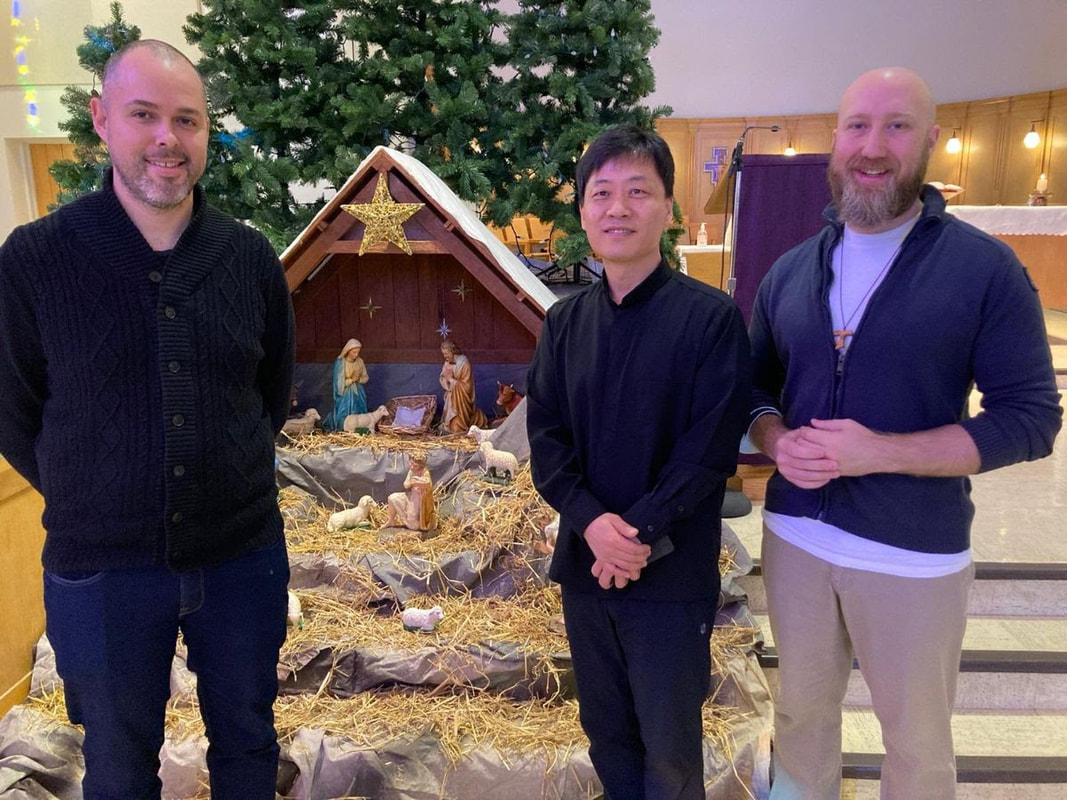
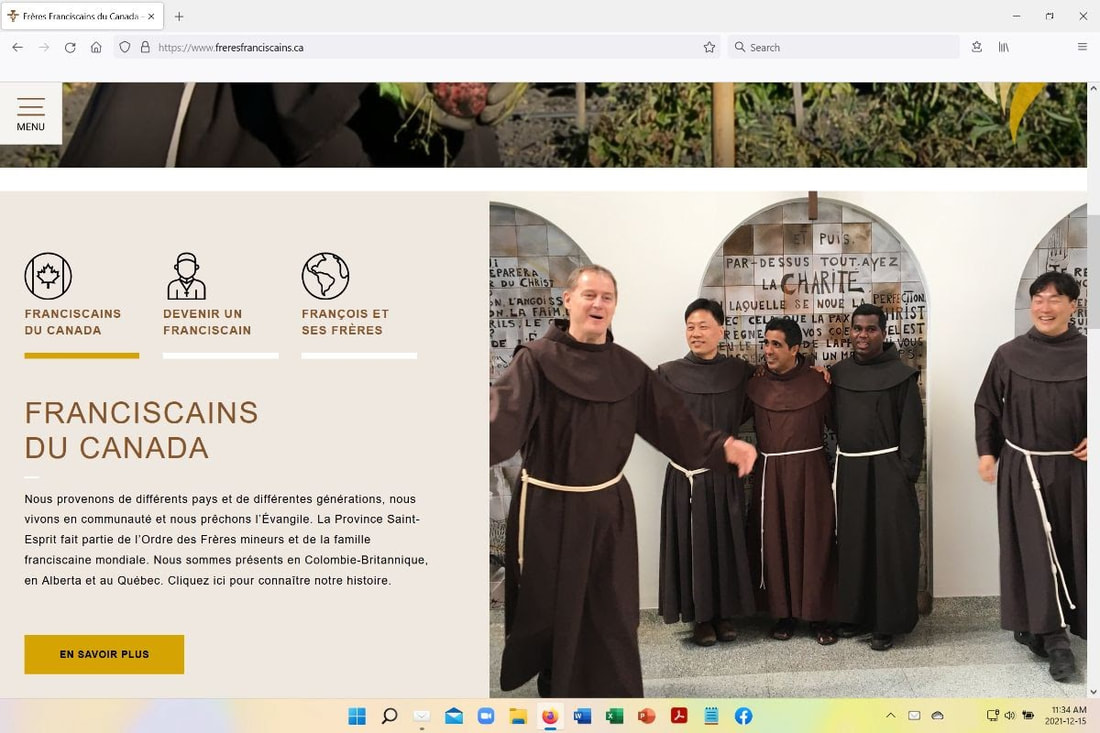
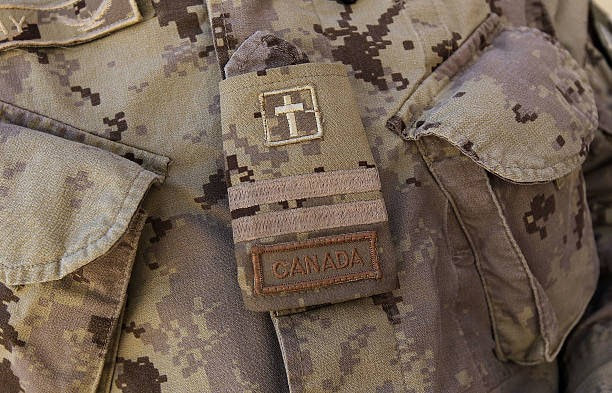
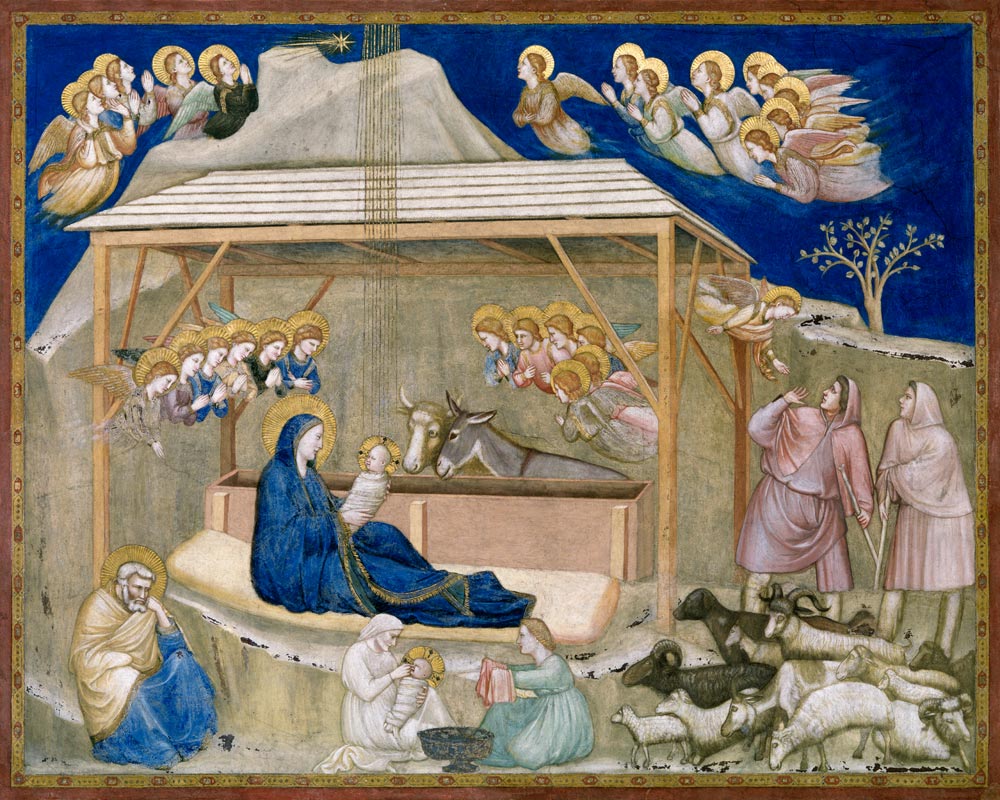
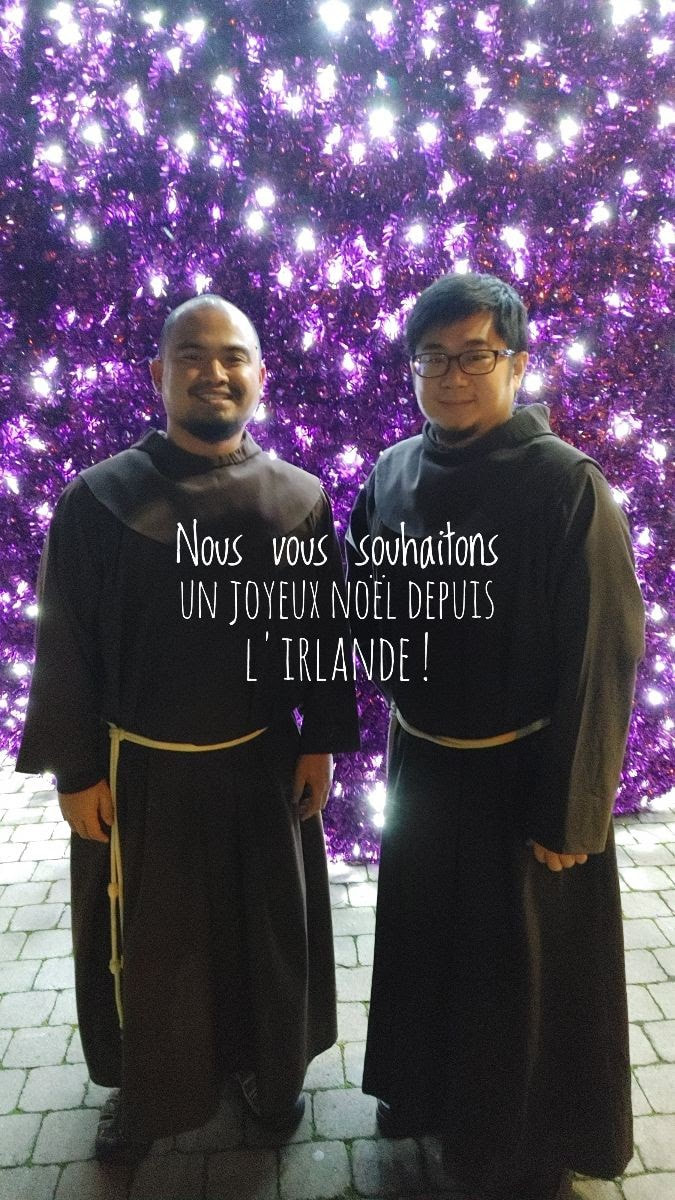

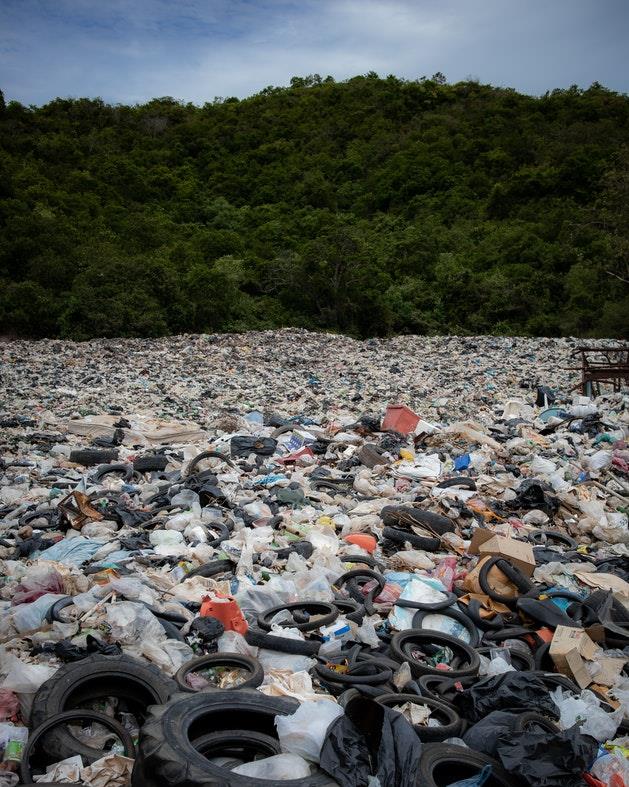


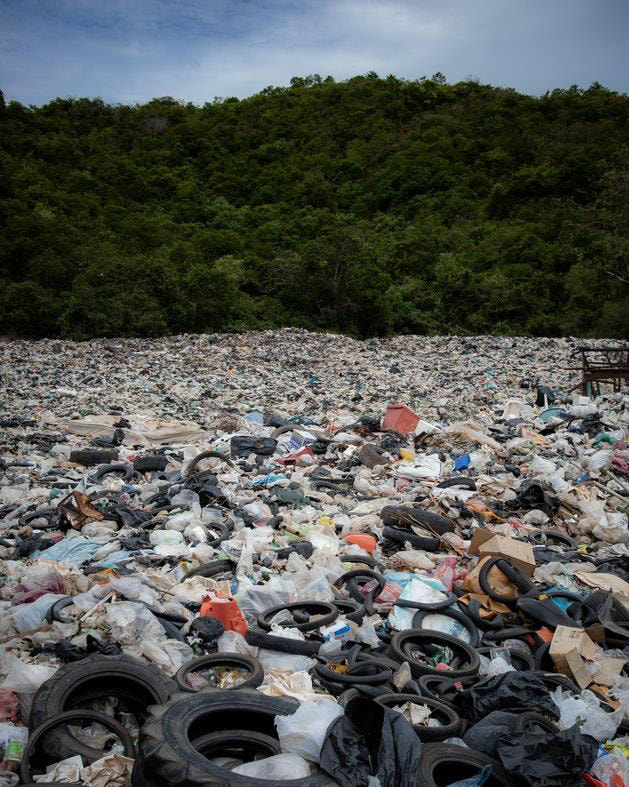

 RSS Feed
RSS Feed